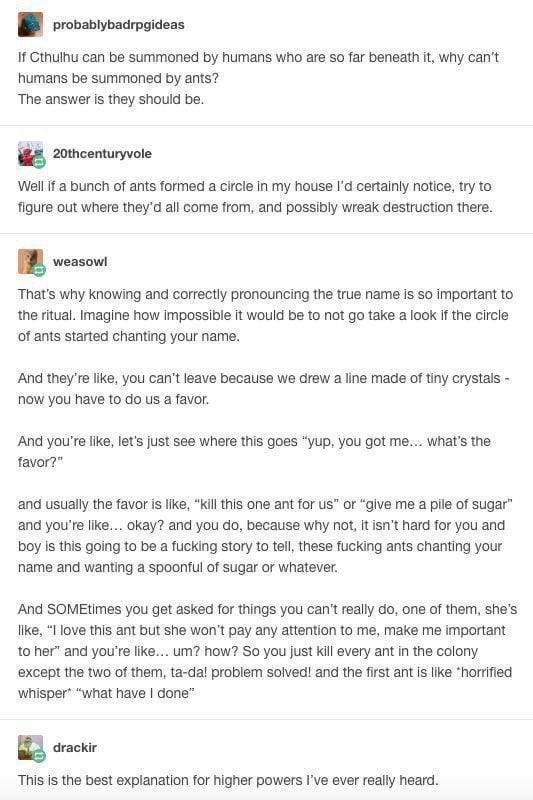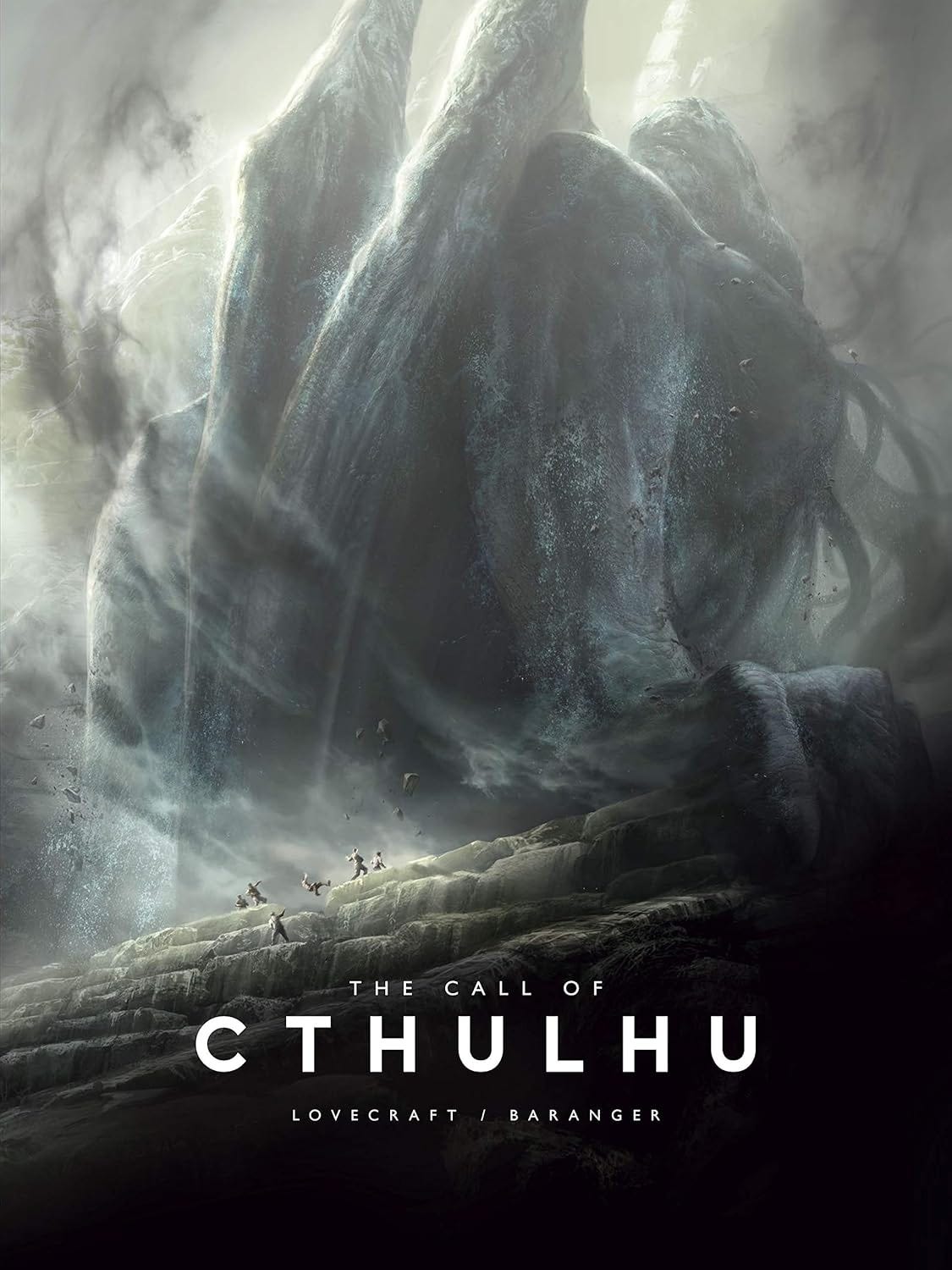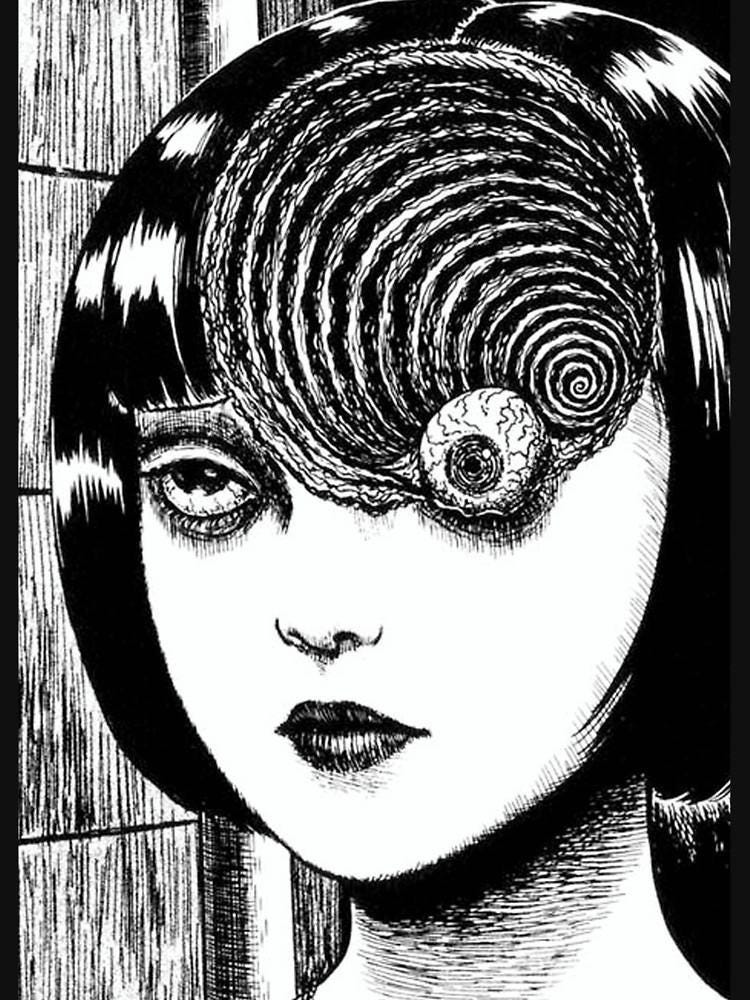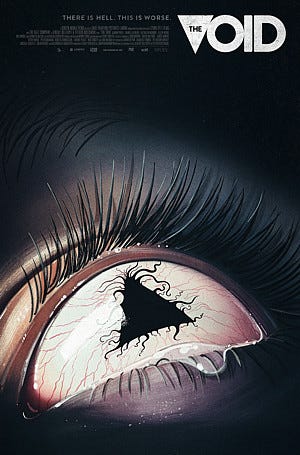Under-Explored Genres: Cosmic Horror
Is H.P. Lovecraft the beginning and end of Cosmic Horror?
Cosmic horror is a genre of fiction that is scarcely explored in modern media. Outside of a few outliers, this subgenre of horror is both a rare, yet fascinating form of story telling.
Today, I will be discussing cosmic horror in a new mini-series called “Under-Explored Genres,” with the goal of expounding these forms of genres to encourage more writers and readers to gain an interest in them.
What is Cosmic Horror?
The fear cosmic horror sparks is unlike other horror genres that focus on either gore, darkness, murder, evil, or merely supernatural phenomena like aliens or ghosts. No, the fear is much more grandiose and primal. Cosmic horror makes the universe so vast, overwhelming, and incomprehensible. You are nothing. Insignificant. A mere bug in the grand scheme of ancient gods far beyond your conception of reality. It preys on your fear of isolation, the unknown, and the fear of learning knowledge that was meant to remain unknown. If you are bold and foolish enough to learn these forbidden truths, you will face an existential crisis that will push you to the brink of insanity.
To get a more accurate grasp, I feel like this humorous thread perfectly encapsulates the entire genre:
Much like this example, we are like ants to these powerful entities. Those who are compelled into cults wish to communicate with these gods and ask for favors, either foolishly, through desperation, or by a form of manipulation. Uncovering these forms of truths may lead to aspiring cultists yearn for belonging and meaning which can only be attained through a higher power - one who does not have their best interests in mind.
Lovecraftian History
One of the earliest, and most popular examples of cosmic horror is H.P. Lovecraft’s “Call of Cthulhu.” Originally written as a novel in 1928, this tale has been adapted in a wide variety of genres, including a tabletop roleplaying game!
Call of Cthulhu did what other horror media didn’t in its time. We’ve had a wide variety of monsters from Dracula to werewolves, all of which had vulnerabilities, scaled down to our level in some degree, while still posing a major threat. Cthulhu, on the other hand, was an eldritch god of incomprehensible power and imposing size, who’s awakening would spell doom for all of humanity. Other monsters would prey on their victims blood and flesh, while Cthulhu preys upon the minds. These monsters can be defeated, Cthulhu was an inevitable force of nature. Other monsters are feared and hunted, while Cthulhu compels humans to worship it, enticing them to uncover forbidden knowledge of the universe and making them addicted to it while shattering their individualities.
A Small Dip in the Cosmic Pool
Where else have we seen such elements play out? This is what inspired me to start this series. As the writer, I haven’t seen too many examples of cosmic horror in most forms of media. Rarely are there eldritch beings of haunting cosmic power or mind-warped cults written about in either novels, shows, or movies.
While you can see these themes in other forms of media, like “analog horror” or in varying universes such as “SCP,” none of them really focus on cosmic horror. We also see these themes in Warhammer 40k with the The Warp and Chaos. However, that’s just one portion of its setting, and while dreadful and grandiose in itself, because of the power fantasy elements other factions carry, with their capabilities to combat these threats, it doesn’t capture the same foreboding essence as other cosmic horror tales. It’s like taking the ants in the above example and giving them access to a taser. Not only that, cosmic horror should be as profound and mysterious to the readers as it is to the characters. There is a lot of lore revolving around the chaos gods in the Warhammer 40k universe, which as a reader, you may feel too ‘spoiled’ to enjoy some of its cosmic horror elements.
I should also mention compelling anime that came out recently that seems to nail these themes, called “Uzumaki.” A town is sucked into madness and unusual phenomenon caused by spirals. The mere concept of a spiral seems to be enough to allure people into cult-like behaviors. This unique *twist* on this genre is fascinating, as a well known and mundane concept can somehow become this anomalous, memetic entity. As opposed to a pre-existing eldritch being, what if something you’re watching or reading about suddenly gains this “god-like” power and warps your mind into its will, turning you into a font of world-ending chaos? While I’m not too familiar with the story of “Uzumaki,” the style and the mind-twisting aspects enticed me to give it a watch.
The Challenge of Cosmic Horror
Another challenge of this genre is doing it right. One example that especially disappointed me was a movie called “Void”. I never watched too much horror, and was turned away from it thanks to the torture porn of the Saw series my friends tried to bring me into. However, because of my fascination with this type of genre, and watching the trailer, “Void” was quite a unique film.
What this movie did right is bringing forth some of the key elements for cosmic horror: mystery, cults, visions, and a dreadful feeling of some grandiose entity looming over your world. The one element it had, but I felt was lacking, was insanity. Usually when it comes to this type of media, insanity plays a huge role, like someone unprepared to take ayahuasca. While the characters in the movie, naturally frightened and fighting for their lives, didn’t really explore much mental deterioration one would expect, at least not to any satisfying level. Usually this results from a yearning to find a sense of self and value in the unknown universe - a sense of belonging that can only be achieved through a cult who has unlocked this forbidden knowledge. This level of insanity would generally cause a character to completely upend their livelihoods for the sake of this “greater purpose.”
The bigger problem, however, lies in the dilution by gratuitous gore and body horror, trying to score points for shock value as opposed to embracing what makes cosmic horror so special. All these elements could’ve been more profound if the direction didn’t lean as heavily into such gory, typical horror tropes you get enough of all over the entire horror film industry. By this dilution, it leads the viewer away from the mystery and intrigue into this mysterious “Black Pyramid” cult and their goals, and instead treats them as generic antagonists with little to no purpose.
Why is Cosmic Horror so Rare?
I suppose the difficulty is what could make this form of media rarely seen. It takes a grandiose mind to write something that depicts entities and elements that should be beyond human comprehension - like trying to take a photo of a black hole, the eyes don’t see it directly, but instead see the effects it has on everything around it.
I tried to implore this principle in my writing at times, from the short stories to various scenes in my upcoming novel, “Mage Hunter” - and it is indeed a challenge. Recently I tried to apply it into my “Illusions of Grandeur” miniseries. How do you describe something to the reader that leaves a lot of mystery and confusion to the logical mind, yet sparks all the dreadful feelings to the emotional heart? How do you write in this matter that pushes the reader to desire more, yet the more they read, the more fear they feel? It’s like a dangerous, addictive drug, much like the quest for forbidden knowledge.
The other hurdle is the demand for such media. Many to this day consider “Call of Cthulu” a cult-classic (no pun intended.) Given the very nature of this genre, cosmic horror can sometimes be hard for average consumers to keep up. Traditional horror, while it can stretch the imagination at times, is still heavily grounded. Trying to relate and ground cosmic horror to viewers, while at the same time maintaining its core themes, is like walking a tight rope: they will either get lost and unable to follow, or the story falls into another generic horror tale.
Portraying this in visual media is also equally challenging, arguably needing to focus more on the expressions of the characters and dip some abstract, estranged, and disturbing imagery.
It’s not easy to accomplish such a feat, but if writers can master these challenges, they can make some astounding horror fiction, in any subgenre.
What do you think? Do you have any cosmic horror stories you really love? Do you wish to see more of this genre flourish? Let us know in the comments!
Speaking of the genre, be sure to stay tuned Monday for a “Cosmic Horror” themed Mage Hunter story!







